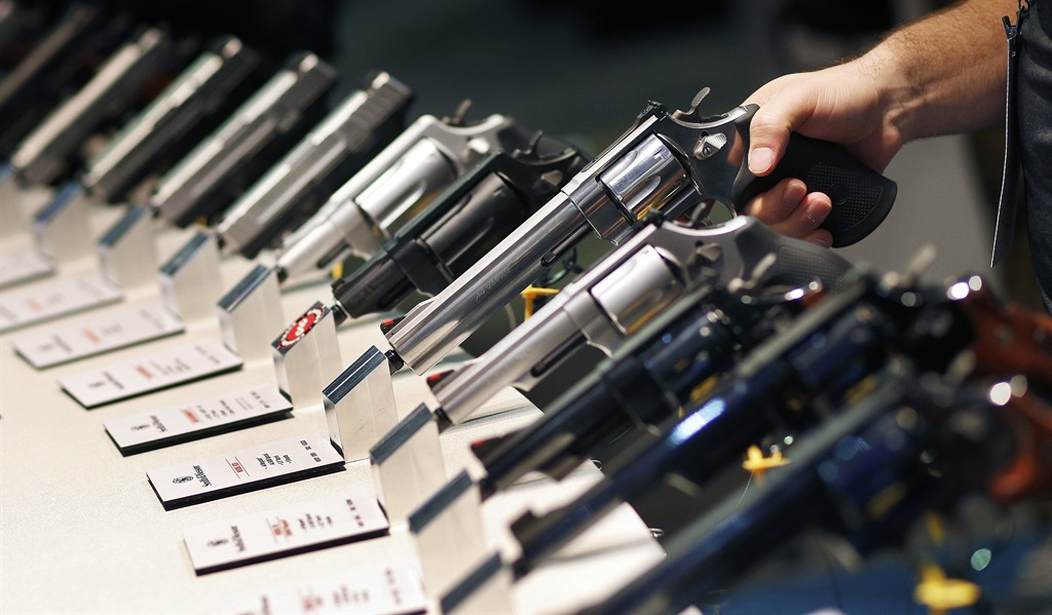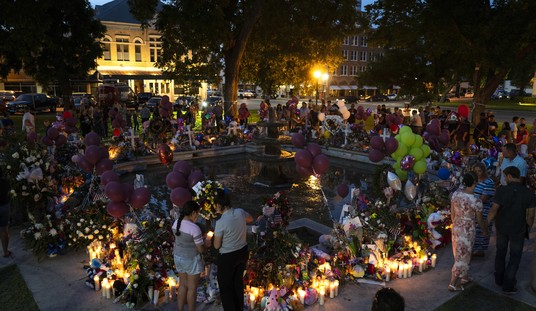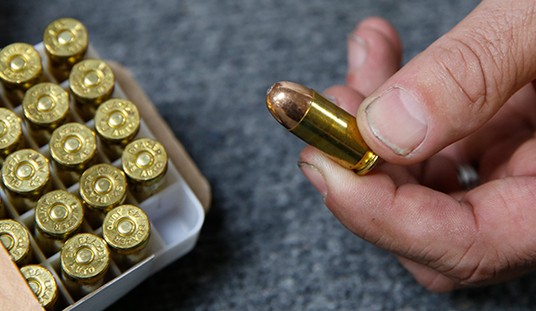Something people need to be very careful of is looking at correlation and assuming causation, even if causation seems obvious. That's because most things involving people are pretty complex, and there are rarely simple answers.
So people need to be wary of anyone bragging about how studying abroad somehow makes them knowledgeable about violent crime issues here in the US. Yet, someone actually did that and put it in writing.
The student in question went to Italy, a country high on my bucket list for a visit.
And apparently, that made her feel like she needed to solve all of America's woes.
I constantly hold my breath, afraid that if I relinquish attention from my surroundings, the shadow will manifest into something tangible, and become a part of my reality.
Last year, there were more mass shootings in the United States than there were days in the year.
A country that makes up 5% of the global population has somehow experienced 31% of the world’s public mass shootings.
I walk with trepidation in public places, scanning jackets or purses and analyzing their ability to conceal murderous intent. I writhe in discomfort — trying to grasp the normality of a country that has a market for bulletproof backpacks and body armor for the typical citizen.
My American identity, one that is confined by my country’s violence, was excavated when I studied abroad in Italy last quarter. I walked the streets of Florence, faced with the biggest culture shock of all: safety. It was an immediate observation. I could close my ears, shut my mind and wander with obliviousness. Yet, I was constantly reminded, caught in the limbo of knowing that this was a temporary ease.
DePaul junior Emily Pederson, who spent a quarter in Ireland, noticed a similar shift.
“It was honestly very freeing to be able to enter a classroom and not think about the best way to barricade the doors,” Pederson said.
In 2024 alone, there were at least 219 incidents involving gunfire on school campuses — including both K-12 and college. The number has become so stark that the names of the victims have become buried in a sea of gun violence. Their memory has been swept into the tide of an ongoing crisis, overshadowed by the next tragedy.
As soon as I opened my mouth in Italy, revealing my American identity, it was taken as an invitation to interrogate me on my country’s politics. I was constantly asked how I felt as a citizen of a country distinctly known for its violence, and I became an outlet for Europeans to rant about how “crazy” America is. My stories of incessant fear were met with derision and disbelief.
OK, so let's get into why this is idiotic.
First, there were not more mass shootings than days of the year. Those numbers come from the Gun Violence Archive which uses an overly broad definition not shared by any other entity regarding what is and what isn't a mass shooting. Most of those hundreds of "mass shootings" involved absolutely no fatalities, for example, and were generally tied to some other kind of criminal activity.
As for the 31 percent number, that link takes you to an abstract of a study. The rest of the study isn't there, and the abstract does not include any percentages. It might be right, but it's also difficult to ascertain exactly what all was included in the methodology.
Finally, let's talk about the 219 incidents involving "gunfire on school campuses," which is an accurate summation, but doesn't include all the facts. That data comes from the K-12 School Shooting Database, which counts literally any example where a gun was fired or a round hits on a school campus, even if school wasn't in session.
A stray bullet hitting a school in the middle of the night during summer break gets counted, even though no student could possibly have been in danger.
In other words, it looks like she's using the least charitable data humanly possible.
And I'm unbothered by the idea that Europeans deride us for our gun culture, or the fact that we have a lot of so-called gun crime. When they can win a world war without us, I might start thinking about caring for their opinion.
However, let's understand that the problem isn't guns. Yes, Europeans have a lot of gun control laws and little so-called gun crime. However, if you strip out the "gun crime" from our non-gun homicide rate for 2020 was higher than a lot of other nations' total homicide rates. That includes gun murders in those countries. In some cases, it's more than twice as high.
Why?
Well, that's a great question, and I don't have a definitive answer, in part because we can't talk about violent crime as a whole. The media and politicians focus on guns as if they're the totality of the problem, but if guns vanished tomorrow, we'd still be far too violent.
Somehow, I don't think any of them thought about that during their beloved semesters abroad.








